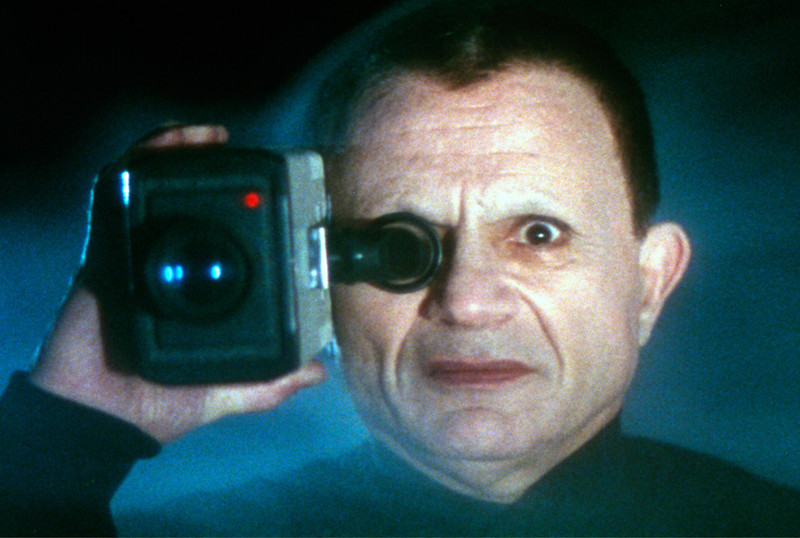
Following up our list of horror movies recommended by Ari Aster, it’s time to turn to another prominent figure in the genre, Robert Eggers. The emergence of these two young directors this past decade has revitalized a watered-down industry full of unnecessary sequels, pandering scripts and overdone tropes. Eggers took horror audiences by storm with a critically appraised debut feature in The Witch, a dreadful folktale that tells the tragic story of a 17th-century New England family. He then followed it up with one of the most enigmatic films of 2019 with The Lighthouse, a black and white atmospheric thriller that foregoes mainstream narrative to put us in the shoes of two isolated lighthouse keepers who grow insane in their solitude. His films are embedded with religious and mythological undertones, invoking terror through razor-sharp build-up and historical authenticity to provide an unsettling mood and full immersion to the period time depicted.
After two critical and commercial splashes, the A24-backed auteur has become one of the hottest commodities in the business, with A-list actors flocking to join his cast and have a chance to work with him. His next project, The Northman, is described as a revenge thriller where a Viking prince avenges his murdered father, and ever since the stacked cast was announced expectations have gone through the roof. The film is currently wrapping up production and we expect it to be released around this time next year, so there’s no better time to revisit some of Eggers’ all-time favorite horror picks. We will be focusing on those that had the biggest impact on his own films, courtesy of an interview the director did on Reddit.
1. Lost Highway (1997)
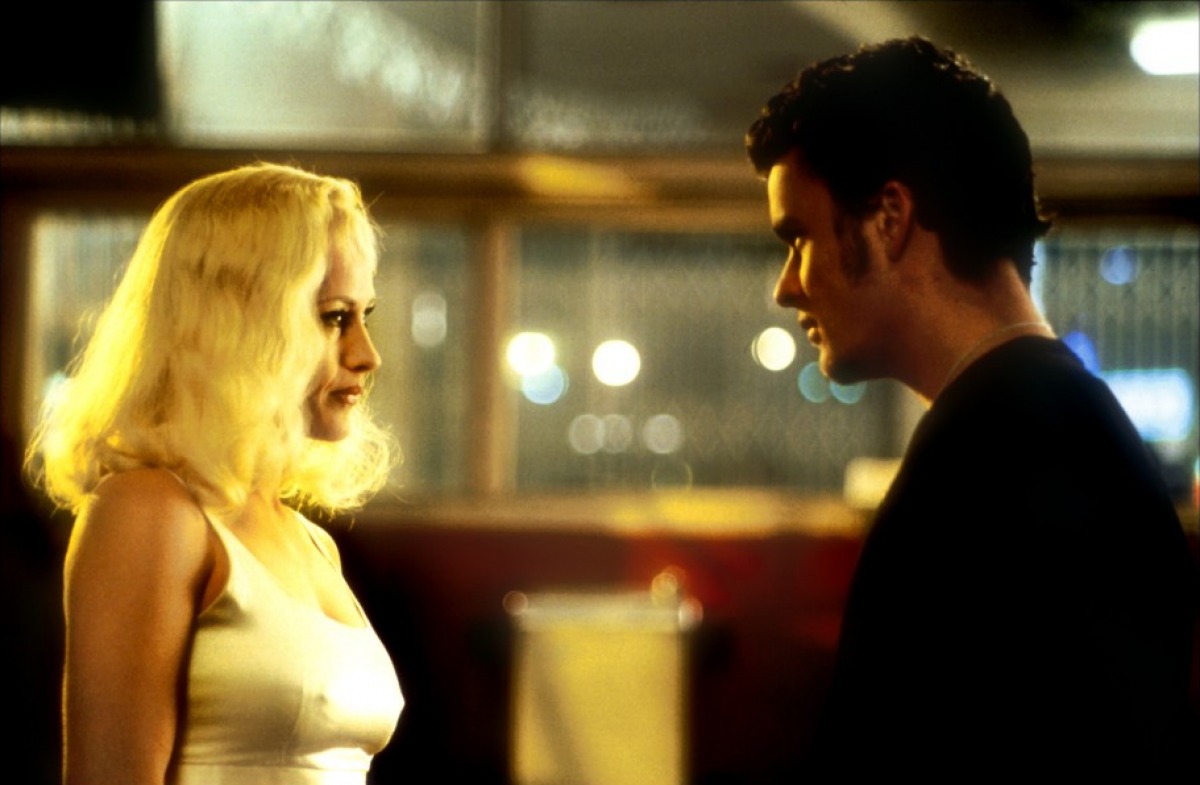
Lost Highway is a film that uncoils itself like a fever dream, free of the shackles of conventional narrative and moving with disorienting pace. Only David Lynch could replicate the disjointed structure and uncanny vibes of dreams while somehow making it feel coherent as a whole. Lost Highway operates in the subconscious and its characters repeatedly find themselves in prompt situations without any kind of build-up, often facing puzzling encounters that don’t necessarily follow a cohesive structure.
This way, Lynch manages to create a far more disturbing film than any conventional horror, one stemming from our most irrational fears. Behind its facade of time jumps and parallel identities, Lost Highway’s story is, in a nutshell, an intricate copping mechanism fabricated by the main character to handle his inner guilt. Robert Eggers recalls the film’s opening sequence, where a paranoid couple receive anonymous tape recorders and come across an eerie individual called Mystery Man, as one of the scariest things in cinema.
2. Rosemary’s Baby (1969)
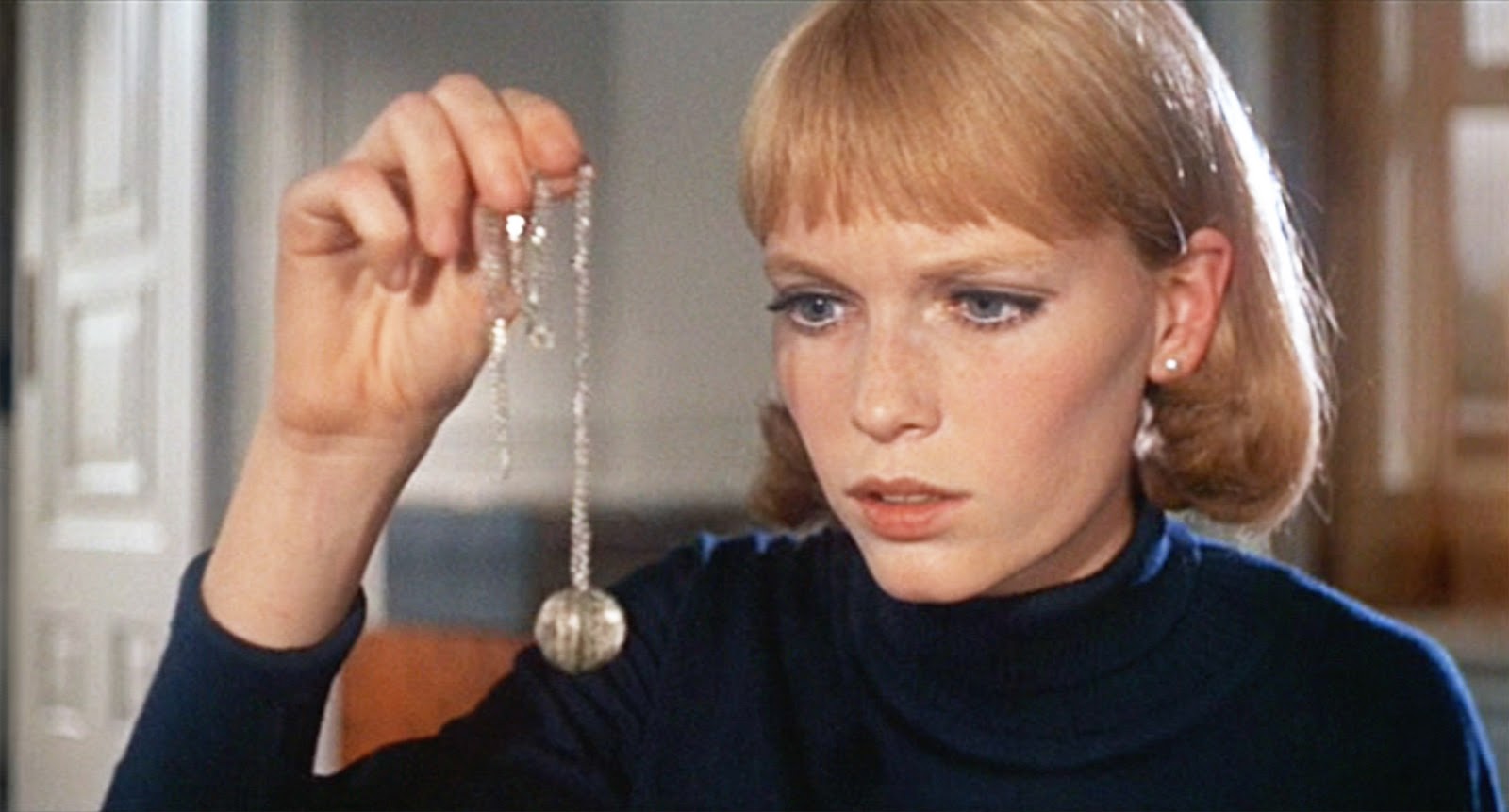
This Polanski classic is a textbook example of psychological horror and by far one of the most influential films in the genre. The movie still serves as inspiration to some of the most high-profile directors working today, from Ari Aster, Jordan Peele to Robert Eggers. The story follows the life of a newly wedded young couple who leave their secluded life in the countryside to move to a new apartment in New York City. Rosemary, who is brought to life by a haunting Mia Farrow, is gaslighted by her own husband (a struggling actor portrayed by the great John Cassavetes) and her eccentric neighbors in a demonic scheme involving her unborn child.
Throughout the movie, Polanski uses masterful build-up and foreshadowing as Rosemary grows increasingly paranoid and restless. The biggest thrill of the movie does not come by cheap jump scares or unexpected plot twists, but rather through a two-hour dreadful crescendo where the seeds of mistrust and isolation create a sense of dismay that is hard to shake off. As a product of its time, it perfectly encapsulates the daunting prospects of marriage, the vulnerability of pregnancy, the demanding pressures of urban environment and the societal fears of that period.
3. The Exorcist (1973)
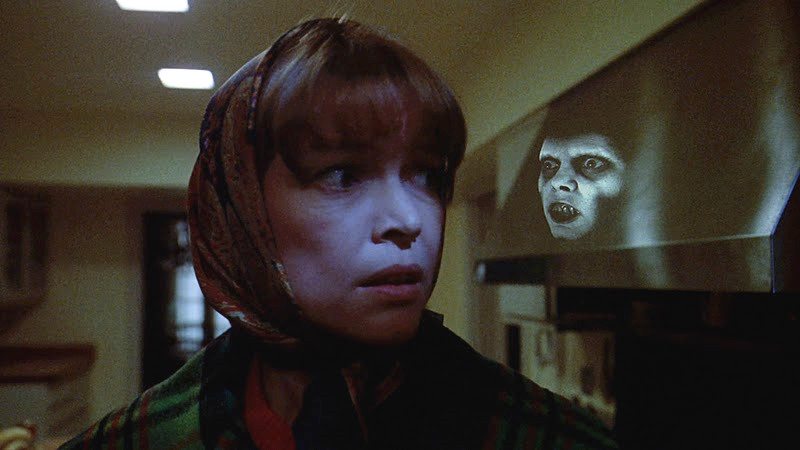
If horror found a new home during the late 60’s in Polanski’s sinister Rosemary’s Baby, it came squirming out of the 70’s with William Friedkin’s The Exorcist. Where the former is an exercise on subtle restraint, an ethereal dread slowly creeping in from every angle, the latter is a graphic embodiment of evil which haunts the audience by unleashing the ultimate danger right in front of its eyes.
The film tells the story of a Hollywood actress and her preteen daughter living in Washington DC. There, the once-cheerful daughter finds herself acting increasingly foul-mouthed and violent, developing a whole new troubled personality. Two priests who are battling with their own faith come to the rescue, determined to free the kid from evil. The Exorcist may seem tame nowadays in our current era where we have all been collectively desensitized when it comes to violence and gore in media. But back when it was released, Friedkin’s haunting classic broke all kinds of taboos and film conventions, it’s an uncompromising thriller that is both a nightmare-fuel experience and a profound rumination on faith.
4. Angst (1983)
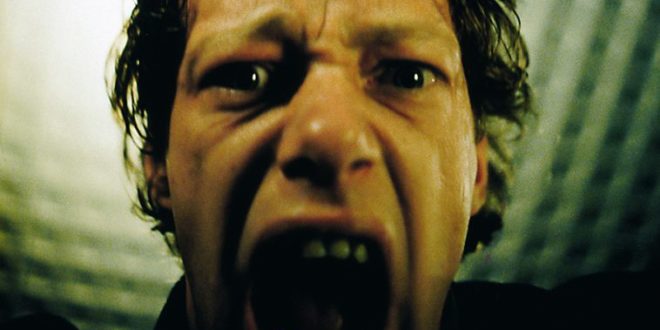
One of the most captivating aspects of horror movies is the figure of the antagonist. They come in different shapes and forms, but they always are defined by their deranged personalities and twisted endeavors. Some of the most iconic horror films have gone down in history in no small part by how memorable their foe was. From Jack Torrance and Hannibal Lecter to Freddy Krueger, horror lore is packed with some of the most despicable yet recognizable faces in all cinema.
What sets apart this Austrian film is how it portrays its own villain. It is too often that a movie conceals him through a web of suspense only for him to appear for merely seconds. This usually makes them too distant, one-dimensional and almost caricatures of evil. Angst shines by approaching the story through the point of view of a serial killer, where the audience is not only forced to see unhinged violence through a whole new viewpoint, but to the extent where it can’t help but feel like an accomplice to his malice.
5. The Cabinet of Dr. Cagliari (1920)
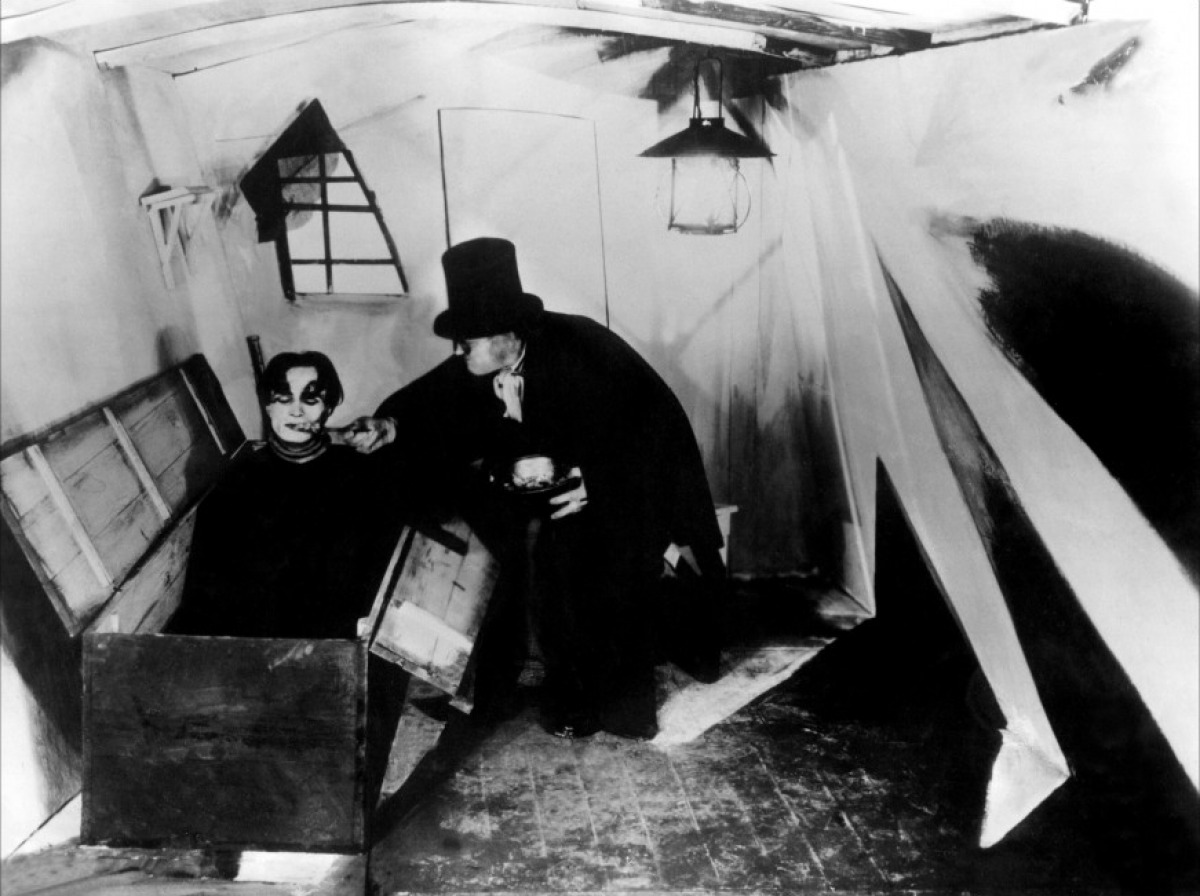
Prophecies, ideological brainwashing and distorted perspectives. If these themes sound familiar it’s because Robert Eggers’ first two directing efforts are soaking with them. From the catholic fanaticism that dooms Thomasin’s family in The Witch, to the dizzying surrealism and symbolism prominently employed to portray fear and madness in The Lighthouse, Eggers owes a whole lot to the German Expressionism movement. In the same vein as one of its contemporaries, Nosferatu, this silent film was by all means revolutionary and set a new standard for layered storytelling in cinema.
This film constantly blurs the line between reality and perception, always staying one step ahead of the viewer and boasting one of the best twists of its era. The dreamlike aura and visual flair that marks the way the story is told is a textbook example of German expressionism cinema. And for all the improvements in the CGI and budget departments, it’s hard to find modern horror movies that rival Dr. Cagliari’s awesome set design and consistent mood.